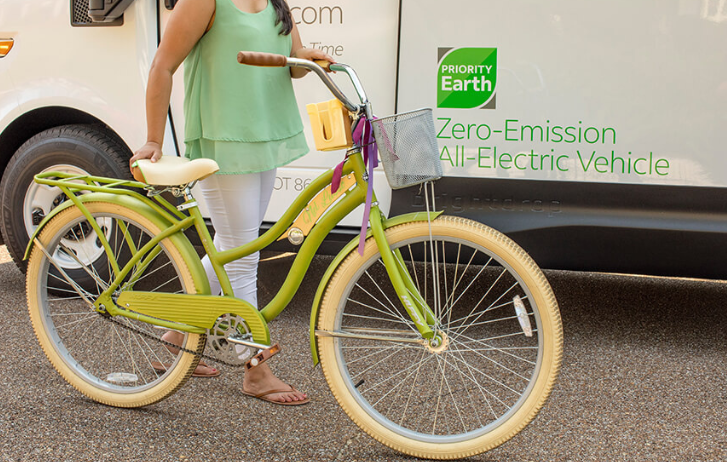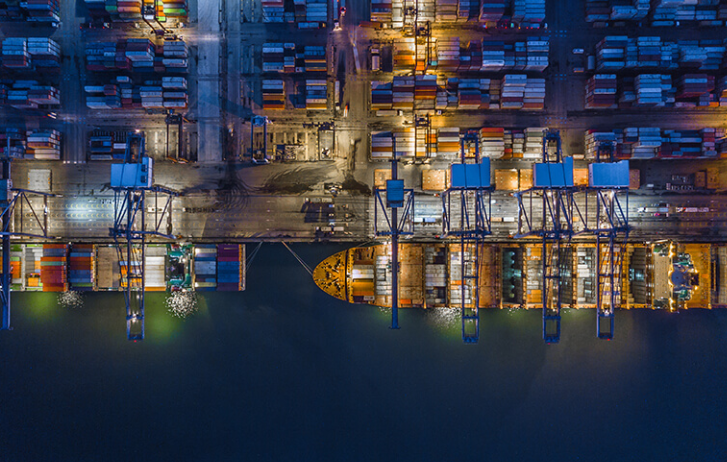
How To Champion Asia’s Entrepreneurs Of Tomorrow
By Salil Chari | First published: August 12, 2022 Updated: June 25, 2024
For 18 years, we’ve been supporting youth entrepreneurship with an annual student trade challenge. But in today’s world, what does the recipe for start-up success look like?
- Entrepreneurs are getting younger. In APAC, running your own business is one of the most sought-after career choices for young people.
- Digitally native Gen Z is becoming known for ‘hustle culture’, creating start-ups from tech services to e-commerce. Check out our top three trends for the entrepreneurs of tomorrow.
It’s official: the number of young entrepreneurs in Asia is rising. Armed with fresh perspectives and creative thinking, Gen Z are the future leaders of this dynamic region. And they have the potential to make a significant impact on the economy.
A legacy of supporting young entrepreneurs with our annual competition, JAITC
Since 2007, FedEx has collaborated with Junior Achievement to host an International Trade Challenge (ITC) for young people aspiring to be future entrepreneurs. Over 45,000 students have participated from across Asia. Many have realized their dream of becoming business leaders and are already shaping our regional economy.
At FedEx, we have decades of experience watching businesses grow and start-ups rise to become powerhouses. After spending some time with the latest talented crop of ITC finalists, judges and mentors, I’m more convinced than ever that starting a new business is one of the most viable options for the next generation.
So what are the trends that can help a first-time entrepreneur to succeed? Here are three important trends fueling the growth of entrepreneurship. Take a look:
1. Our world is interconnected
We’ve seen a growing number of bilateral and multilateral trade agreements signed between Asia and the rest of the world over the past few years. Each one of them is good news for commerce.
With the world’s largest trade deal - The Regional Comprehensive Economic Partnership (RCEP) now up and running, start-ups and small businesses are being presented with new opportunities to join a bigger and stronger regional value chain.
Today, we are all living in an interconnected world. Physical boundaries are no longer a constraint for business thanks to globalization.
In particular, entrepreneurs in Southeast Asia are unlocking exciting opportunities for interconnected commerce.
If you look at what’s happening in global trade, a clear trend is that businesses are rethinking and reshaping their manufacturing and supply chain strategies. At the center of this shift is the move from a single-source to a multi-source, more diversified sourcing strategy.
Countries such as Vietnam, Thailand, and the Philippines are strong contenders to become the next global manufacturing hub. This is good news for the regeneration and recovery of business in the region.
2. Technology democratizes opportunity
The second trend is how technology is democratizing the conventional business world. Thanks to rapid digital advancement, we’re seeing more opportunities for young entrepreneurs to compete on the global stage.
Digital tools have married the physical and virtual workplaces. So too have (AI) and machine learning, making so much more possible for small businesses. At FedEx, we’ve seen start-up founders in Singapore use AI to build a predictive healthcare solution to solve the world’s leading chronic disease, and many similar examples exist throughout the region.
Today’s youth were born into the digital world. They have the innate ability to not only navigate technologies like AI as part of everyday life, but invent something new and innovative to move the business world forward.
While digital shifts aren’t new, the rate of digital acceleration is. For instance, we’re seeing businesses that once mapped digital strategy years ahead now scale the same initiatives in a matter of weeks. The speed of change has been phenomenal.



3. Purpose-driven businesses are leading progress
The third trend is that future businesses will be purpose-driven, shaped by a new set of values in the wake of the global pandemic and climate crisis. We’ve learned from numerous studies that businesses are increasingly prioritizing people and the planet over profit.
Sustainability is a business imperative today and will remain so. We know the path to net-zero cannot be built overnight, and there is an immense amount of work to be done to create more sustainable ways of operating.
For future entrepreneurs, building a purpose-driven, sustainable business is an absolute must. To achieve this, many young entrepreneurs are looking for solutions and business partners who share the same values, from sourcing and packaging to operations and investments.
Entrepreneurship and sustainability are now inextricably linked
FedEx is a people-focused, purpose-driven organization. We’re proud to be the leader and forerunner of the logistics industry by setting an ambitious goal of achieving carbon-neutral operations by 2040 – 10 years ahead of the goals set by the Paris Climate Agreement.



Of course, achieving this bold goal can be done by FedEx acting alone. That’s why supporting initiatives like the ITC are so critical. We believe the key to success lies in collaboration and ground-breaking innovation.
We believe there’s a real need to help nurture next-gen business leaders with critical skills to build future-ready, purpose-driven businesses. It requires more than expertise and digital know-how. Tomorrow’s SMEs need to have burning passion, dedication, and commitment in every step they take.
For instance, in the Philippines, we work with an inspiring young entrepreneur who built a social enterprise that employs local female artisans to create a wide variety of high-quality, traditional Filipino handicrafts and sell them to global customers.
In India, to reduce waste from single-use plastics, one young female entrepreneur has built one of India’s largest sustainable food packaging businesses by converting common crop waste into sustainable packaging that is 100% natural, compostable, and biodegradable.
As global leaders place more emphasis on sustainable business practices, there will be rapid growth in climate and equality-focused start-ups in our region. And I look to the next generation to be part of that growing entrepreneurial community.



Future entrepreneurs will succeed by daring to challenge the status quo, doing things that haven’t been done before, making a positive impact on people and communities. All this makes the world we live in more inclusive, equitable and sustainable.
Finally, when it comes to entrepreneurship, there's one thing that hasn’t changed. In the words of one very successful entrepreneur, Fred Smith, who founded FedEx some 50 years ago: “Fear of failure must never be a reason not to try something.”
Seeing so many talented young people starting out with such promising steps, it's clear that many more students will set the world alight on their future entrepreneurial journey.
For more support and advice on your first business venture, visit our Small Business Center here.
SHARE THIS STORY
- 85% Of APAC Businesses Plan To Expand Into Europe, According To New FedEx Report
- Generative AI: A New Frontier
- How To Ship A Giant Panda
- The Rise Of Intra-Asia Trade: Opportunities In The China-Southeast Asia Corridor
- Where Do Old Planes Go When They Retire?
- What’s So Dangerous About Coconuts? Your Guide To Dangerous Goods Logistics
Sign up now and save on your shipping rates!
Sign up now and earn discounts by shipping instantly with FedEx Ship ManagerTM at fedex.com.
Recommended For You

The Rise Of Female Entrepreneurship In China’s E-commerce Landscape
Women entrepreneurship is on the rise in China, where female-owned online businesses like Musesonly are driving e-commerce growth and innovation.
Read More
Finding The Talent Of Tomorrow: Our Youth Entrepreneurship Competition
Our International Trade Challenge is an annual contest to find the best entrepreneurial minds amongst students in Asia Pacific.
Read More
Top 3 Trends For The Future Of Entrepreneurship
Becoming an entrepreneur is now the first choice for young people in Asia, who aspire to found new businesses over traditional employment.
Read More


